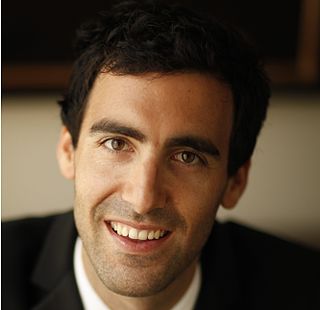A Quote by Nate Silver
Data-driven predictions can succeed-and they can fail. It is when we deny our role in the process that the odds of failure rise. Before we demand more of our data, we need to demand more of ourselves.
Related Quotes
In my view, our approach to global warming exemplifies everything that is wrong with our approach to the environment. We are basing our decisions on speculation, not evidence. Proponents are pressing their views with more PR than scientific data. Indeed, we have allowed the whole issue to be politicized-red vs blue, Republican vs Democrat. This is in my view absurd. Data aren't political. Data are data. Politics leads you in the direction of a belief. Data, if you follow them, lead you to truth.
Disruptive technology is a theory. It says this will happen and this is why; it's a statement of cause and effect. In our teaching we have so exalted the virtues of data-driven decision making that in many ways we condemn managers only to be able to take action after the data is clear and the game is over. In many ways a good theory is more accurate than data. It allows you to see into the future more clearly.
We are ... led to a somewhat vague distinction between what we may call "hard" data and "soft" data. This distinction is a matter of degree, and must not be pressed; but if not taken too seriously it may help to make the situation clear. I mean by "hard" data those which resist the solvent influence of critical reflection, and by "soft" data those which, under the operation of this process, become to our minds more or less doubtful.
Our increasingly electrified, electronic, and data-driven society places steadily rising demand on reliable baseload power - that is, on electricity available 24/7/365. Servers never sleep, nor does air conditioning during hot nights, and in Asia's megacities, subways and electric trains take only brief naps between midnight and 5 A.M.
MapReduce has become the assembly language for big data processing, and SnapReduce employs sophisticated techniques to compile SnapLogic data integration pipelines into this new big data target language. Applying everything we know about the two worlds of integration and Hadoop, we built our technology to directly fit MapReduce, making the process of connectivity and large scale data integration seamless and simple.
I personally think there's going to be a greater demand in 10 years for liberal arts majors than there were for programming majors and maybe even engineering, because when the data is all being spit out for you, options are being spit out for you, you need a different perspective in order to have a different view of the data.






































